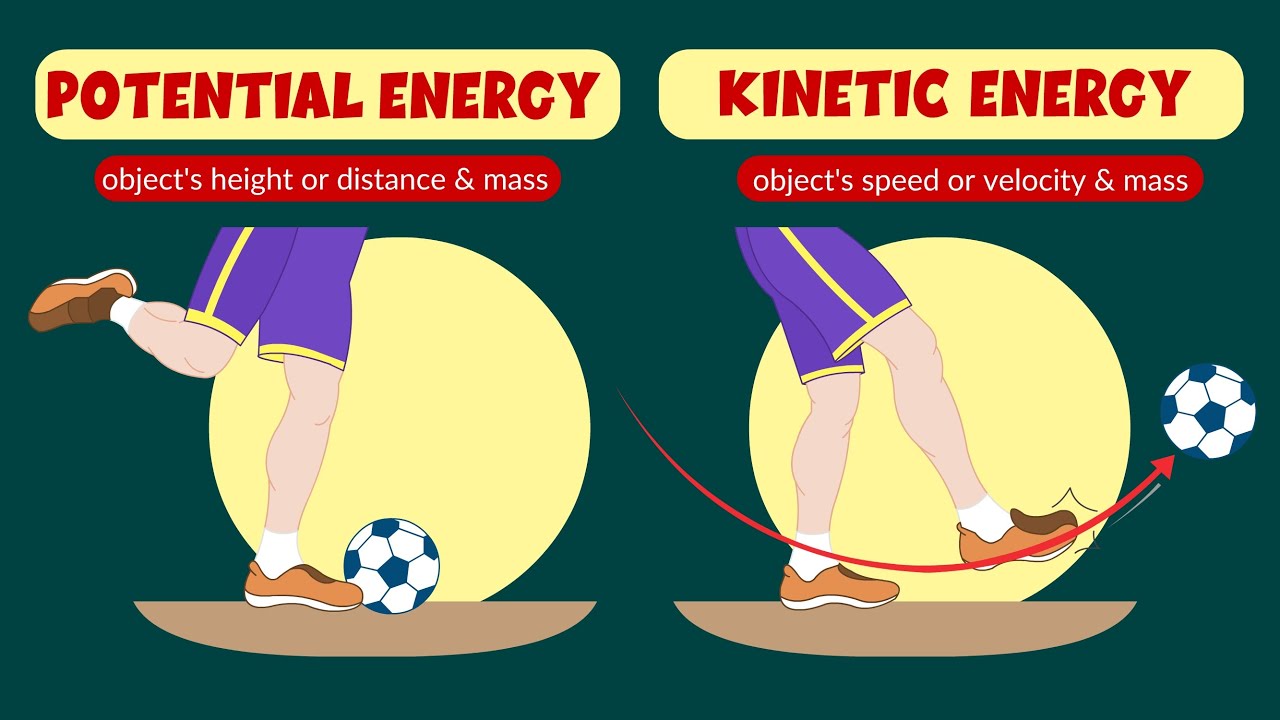Kinetic energy is a fundamental concept in physics that describes the energy an object possesses due to its motion. This quiz will challenge your understanding of kinetic energy, from basic principles to advanced applications. Sharpen your physics skills and see how well you can apply the concepts of kinetic energy in different scenarios. Good luck!
We recommend that you do not leave the page that you are taking this quiz in. Stay honest 🙂
Kinetic Energy Quiz Questions Overview
1. What is the formula for calculating kinetic energy?
KE = 1/2 mv^2
KE = mv^2
KE = 1/2 m^2v
KE = m^2v^2
2. Which of the following factors does NOT affect an object’s kinetic energy?
Mass
Velocity
Height
Speed
3. If the velocity of an object is doubled, how does its kinetic energy change?
It remains the same
It doubles
It triples
It quadruples
4. What is the kinetic energy of a 2 kg object moving at 3 m/s?
3 J
6 J
9 J
18 J
5. Which of the following objects has the highest kinetic energy?
A 1 kg object moving at 10 m/s
A 2 kg object moving at 5 m/s
A 3 kg object moving at 4 m/s
A 4 kg object moving at 3 m/s
6. How does kinetic energy relate to work done on an object?
Kinetic energy is the work done to stop the object
Kinetic energy is the work done to move the object
Kinetic energy is unrelated to work
Kinetic energy is the work done to change the object’s shape
7. What happens to the kinetic energy of an object if its mass is halved while its velocity remains constant?
It remains the same
It is halved
It is doubled
It is quartered
8. Which unit is used to measure kinetic energy?
Newton
Joule
Watt
Pascal
9. What is the kinetic energy of a 5 kg object moving at 2 m/s?
5 J
10 J
20 J
25 J
10. Which of the following best describes kinetic energy?
Energy an object has due to its position
Energy an object has due to its motion
Energy stored in chemical bonds
Energy transferred by heat
11. How does friction affect the kinetic energy of a moving object?
Increases kinetic energy
Decreases kinetic energy
Has no effect on kinetic energy
Converts kinetic energy to potential energy
12. What is the kinetic energy of a car with a mass of 1000 kg moving at a speed of 20 m/s?
100,000 J
200,000 J
300,000 J
400,000 J
13. Which of the following statements is true about kinetic energy?
Kinetic energy is always positive
Kinetic energy can be negative
Kinetic energy is always zero
Kinetic energy is always constant
14. If an object is not moving, what is its kinetic energy?
Zero
Positive
Negative
Infinite
15. Which of the following scenarios involves the conversion of kinetic energy into potential energy?
A ball rolling down a hill
A car accelerating on a flat road
A pendulum reaching its highest point
A skateboarder moving at constant speed
We recommend that you do not leave the page that you are taking this quiz in. Stay honest 🙂











